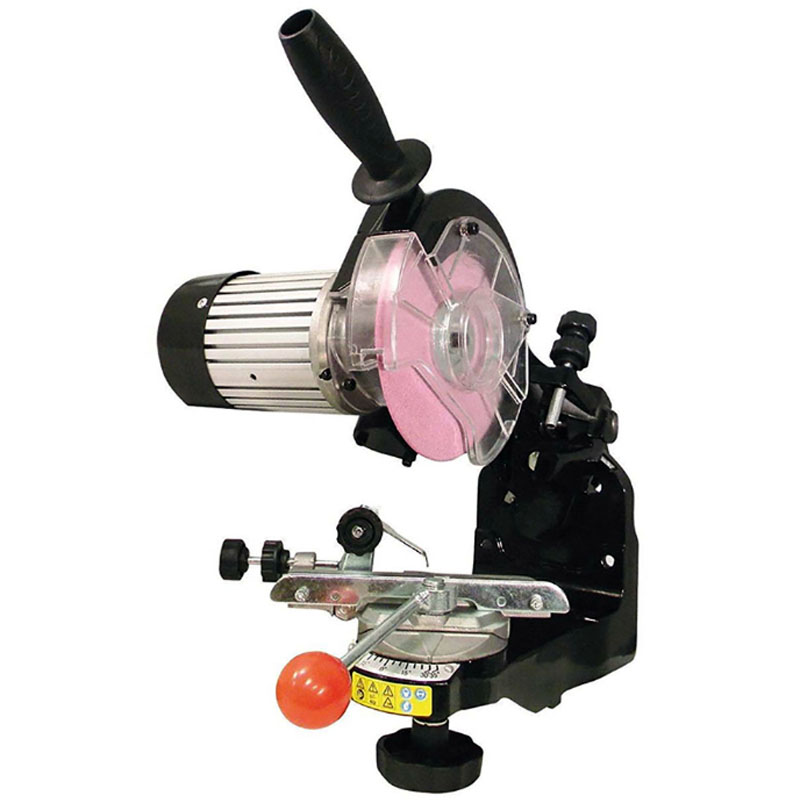Keeping your chainsaw in top condition is essential for ensuring it lasts at least ten years or more. One of the most important maintenance tasks you can perform is sharpening the teeth on the chain. This not only keeps your saw running smoothly but also ensures it remains safe and efficient when cutting through wood. If you need to sharpen your chainsaw, choosing the right tool is crucial. There are two main types of chainsaw sharpeners available—manual and electric. Each has its own advantages and disadvantages, and understanding these differences can help you make an informed decision based on your needs. Below is a detailed guide that covers everything you need to know about chainsaw sharpeners, from the basics of how they work to the pros and cons of each type. Whether you're a professional or a DIY enthusiast, this article will help you choose the best option for your chainsaw maintenance routine. Chainsaw teeth are designed to cut through wood efficiently. They have a beveled edge that does the actual cutting and a flat side that helps guide the chain through the material. Over time, these teeth can become dull or damaged due to regular use, which makes cutting more difficult and less effective. Sharpening your chainsaw is a vital task to maintain both safety and performance. Here’s a step-by-step guide to help you get started: Step 1: Secure the Chain Before you begin, ensure the chain is properly fastened to the chainsaw. This prevents any movement during the sharpening process and ensures a safer experience. Step 2: Locate the Dull Teeth Identify the teeth that are dulled or worn out. These are the ones you’ll focus on during the sharpening process. Step 3: Set the Depth Gauge The depth gauge is the small bump on the top of each tooth. Use a depth gauge tool to level it with the rest of the tooth to maintain even cutting performance. Step 4: File the Tooth Using a chainsaw sharpener, file each tooth at a slight angle to create a bevel. Maintaining the correct angle is key to ensuring the teeth cut effectively. Step 5: Repeat the Process Continue sharpening each tooth around the entire chain, making sure they are all evenly sharpened. Step 6: Inspect the Chain After sharpening, check the chain for symmetry and consistency. If any teeth are uneven, re-sharpen them to ensure uniformity. Step 7: Clean the Chain Once done, clean the chainsaw thoroughly to remove any debris or filings. Store it in a cool, dry place if you’re not using it immediately. Manual chainsaw sharpeners are a popular choice for those who prefer a hands-on approach. These tools typically consist of a file guide and a round file used to sharpen the teeth. To use one, you clamp the file guide onto the chainsaw bar and manually file down each tooth. Pros of Manual Chainsaw Sharpeners Cons of Manual Chainsaw Sharpeners Electric chainsaw sharpeners offer a more automated solution. These devices use a motor-driven abrasive wheel to sharpen the chain quickly and accurately. They are ideal for users who want efficiency without sacrificing precision. How to Use an Electric Chainsaw Sharpener Pros of Electric Chainsaw Sharpeners Cons of Electric Chainsaw Sharpeners When deciding between manual and electric sharpeners, consider factors like cost, ease of use, and accuracy. Manual sharpeners are more affordable and portable, but they demand more skill and time. Electric sharpeners offer greater precision and speed, but they come at a higher price and require a power source. Several factors should influence your choice, including the size of your chainsaw, how often you need to sharpen it, and your level of experience. Larger chainsaws may benefit more from electric sharpeners, while occasional users might find manual options sufficient. Whether you're a professional or a hobbyist, choosing the right chainsaw sharpener is key to maintaining your equipment. While manual sharpeners are cost-effective and portable, electric models provide greater accuracy and convenience. If you're looking for the best electric chainsaw sharpener in Australia, visit our online store today and Shop now! Chongqing Wishcarry Trade Co.,Ltd. , https://www.wishcarry-cooler.com
The Basics of Chainsaw Sharpening
Manual Chainsaw Sharpeners
Electric Chainsaw Sharpeners
Comparing Manual and Electric Chainsaw Sharpeners
Factors to Consider When Buying a Chainsaw Sharpener
Buy a Quality Electric Chainsaw Sharpener Today
Comparing Manual and Electric Chainsaw Sharpeners: Which is Right for You?